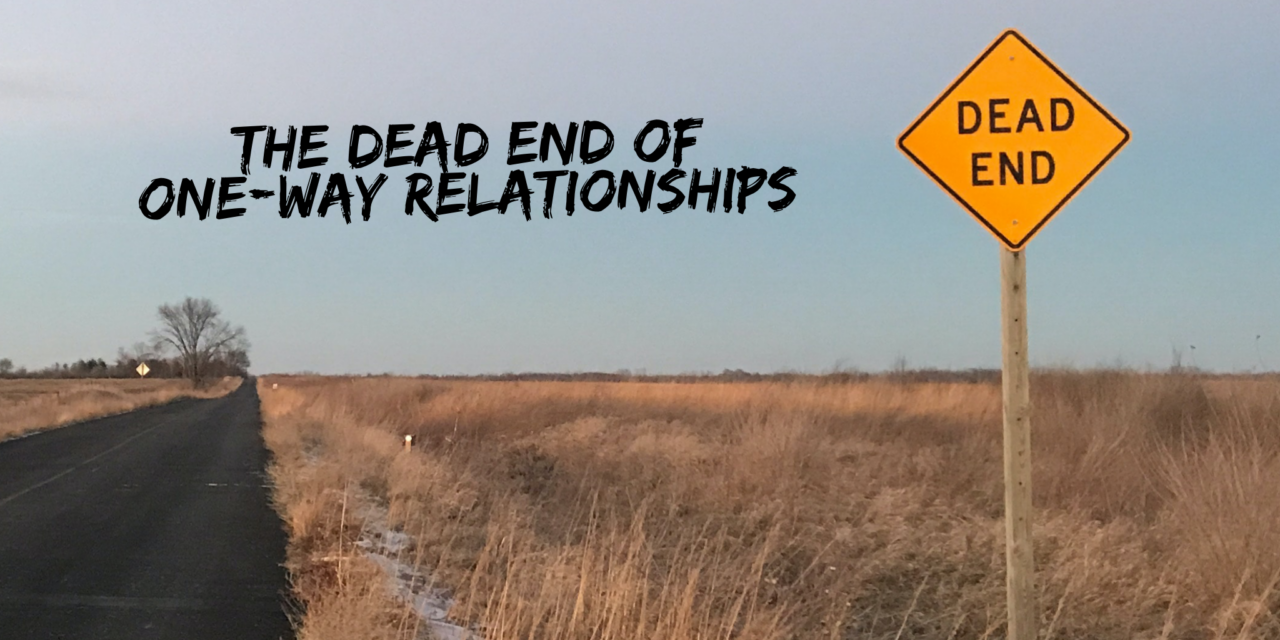John 13:34 — A new commandment I give unto you, That ye love one another; as I have loved you, that ye also love one another.
Healthy relationships involve love and humility—love that truly cares for and looks out for another person’s needs and humility to apologize if you get out of sorts and wound the other person. It’s the reality of Jesus’ words to love one another. His use of one another implies this is a reciprocal love, making it a two-way street.
While it is right to love regardless of receiving love (and this is an important part of Christian responsibility), close relationships involve mutual love and humility. In fact, close relationships demand it.
Some people, however, hold to a mindset of love as a one-way street. To begin with, these people cannot help but believe they are always right. Therefore, when relationships become strained, it is expected that the other party (assumed to be at fault) must come groveling back to make things right. Should they be confronted with wrongdoing, they are instinctively defensive instead of transparent. These people do not apologize because they do not view themselves as having done wrong. Occasionally, they may feel compelled to feign an apology, but even then, it amounts to some variation of “I’m sorry if I offended you.” Expressing regret with an “if I offended” clause will always ring hollow because it spares the apologizing party from examining what actually transpired and instead conveys the notion, “I’m sorry you are really the problem.”
Such a rigid mentality in the name of righteousness will produce a controlling atmosphere that inevitably mistreats others, sometimes significantly so. Over time, this one-way relationship can become toxic. Toxins are controlling substances that harm. Toxic people are controlling people that harm via mistreatment doled out as they motor along their one-way street. Leadership with the fruit of the Spirit is biblical and vital. Oppressive rigidity concerned more with a supposed agenda of righteousness than with actual people is not. It’s a one-way street and a dead end to healthy relationships.
The only hope is the honesty of humility which accesses grace. God gives grace to the humble (James 4:6; 1 Peter 5:5). We live in a broken world. That is why we need Jesus. Jesus saves; Jesus heals; Jesus helps us to humble ourselves when we wrong others. This humility and love nurtures healthy relationships.
If you’re in a relationship that is a one-way street back to another person, then your closeness will be limited. If you’re the one making everyone else bow to you, perhaps it is time to humble yourself.

John Van Gelderen
Post Author












So excellent!! Thank you!
Good article on a needy area!